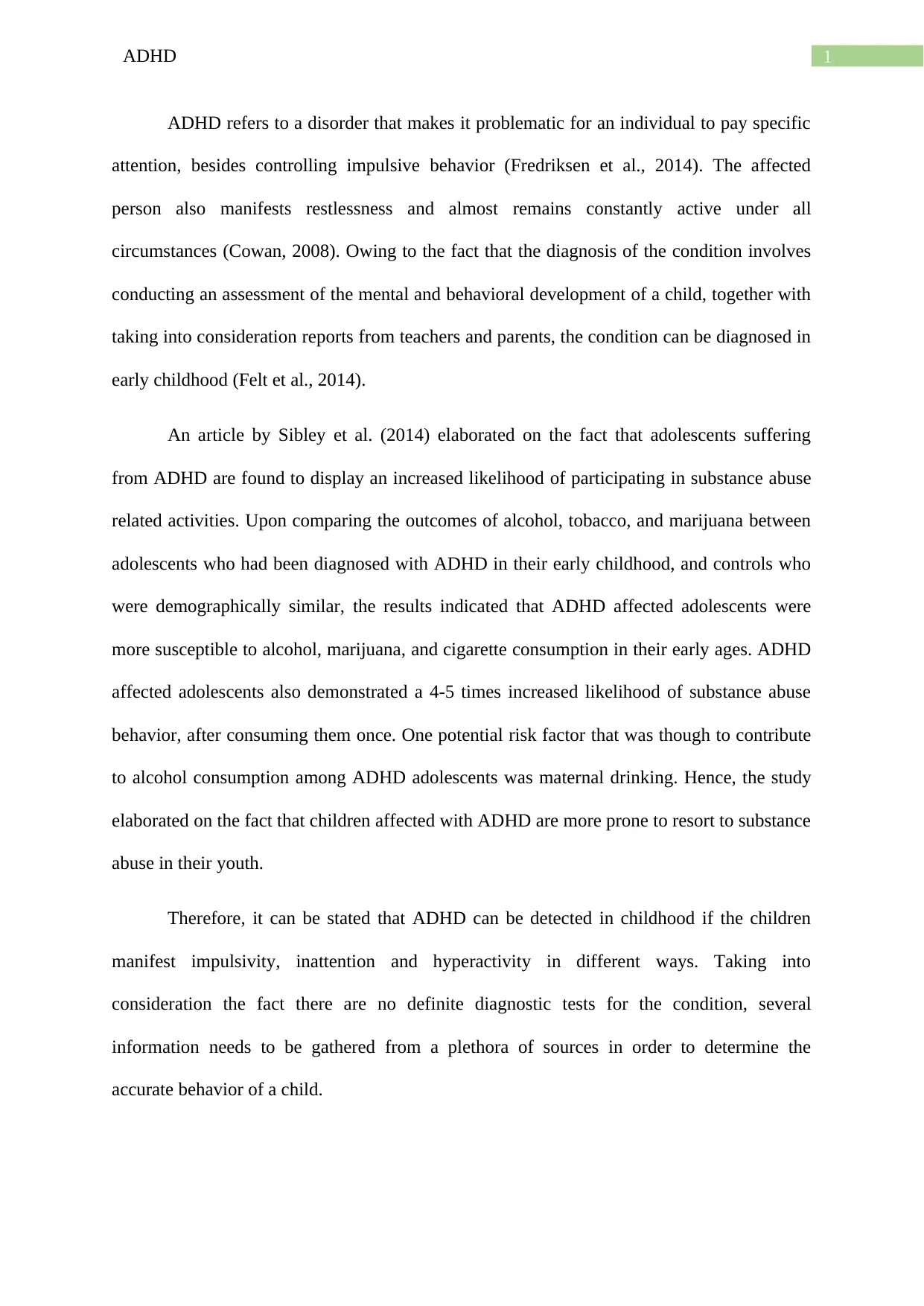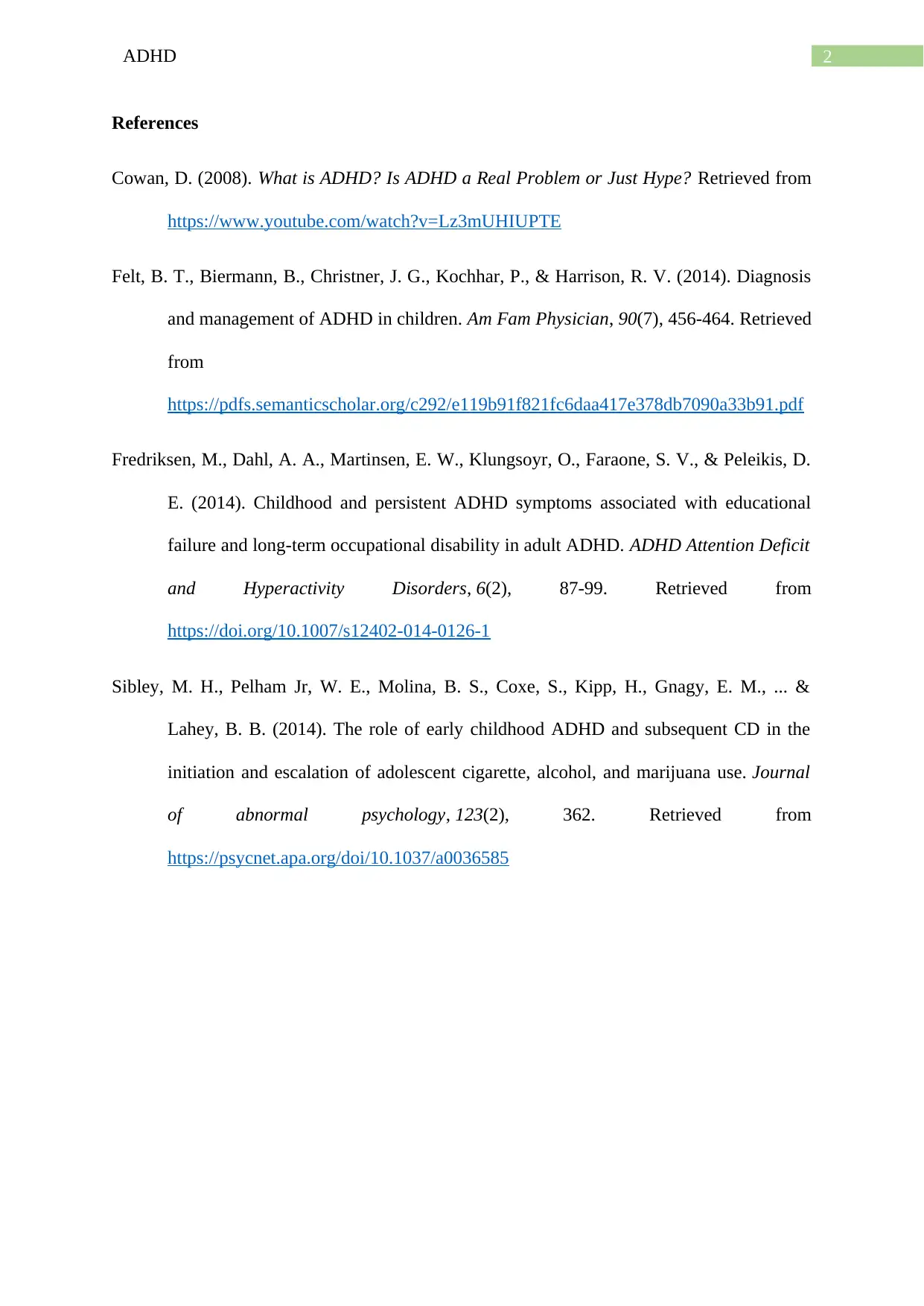ADHD Discussion: Early Detection, Adolescent Impact, and Risk Factors
VerifiedAdded on 2023/04/20
|3
|565
|299
Discussion Board Post
AI Summary
This discussion post delves into Attention Deficit Hyperactivity Disorder (ADHD), highlighting its characteristics, early detection methods, and potential impact on adolescents. It references research indicating that adolescents with ADHD are more prone to substance abuse, with factors like maternal drinking potentially contributing to this risk. The post emphasizes the importance of gathering information from various sources to accurately assess a child's behavior, given the absence of definitive diagnostic tests for ADHD. It concludes by reiterating that early signs of ADHD, such as impulsivity, inattention, and hyperactivity, can be detected in childhood through careful observation and comprehensive evaluation.
1 out of 3




![[object Object]](/_next/static/media/star-bottom.7253800d.svg)